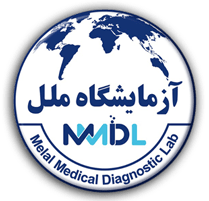Systemic lupus erythematosus (SLE) is a systemic autoimmune disorder, characterized by a wide spectrum of clinical manifestations that can affect many organs, including the skin, joints, the central nervous system and the kidneys. Rare, inherited, single-gene complement deficiencies are strongly related to SLE, but the disease is inherited during a polygenic manner in most patients. because of the heterogeneity of SLE, Diagnosis remains challenging through a combination of clinical and laboratory criteria.
Panel test for SLE
- Complete blood count.
- Erythrocyte sedimentation rate (ESR) and C-Reactive Protein (CRP).
- liver transaminases.
- Immunologic tests:
- Complement 3, 4, and CH50.
- Antinuclear antibody (ANA) test
- Double-stranded DNA (dsDNA)
- Extractable nuclear antigens
- Smith (Sm) antibodies
- Ribonucleic protein (RNP) antibodies
- Anti-Sjögren’s syndrome antigen A (SSA, or Ro) and anti-Sjögren syndrome antigen B (SSB, or La) antibodies
- Histone antibodies
- Anti-ribosomal P (anti-P)
- Chromatin antibodies
- Anti-C1q antibodies
- Consider the following testing to rule out other diseases:
- Antiphospholipidantibodies
- Cryoglobulin
- Neurolupus:CSF test: for cell count, glucose, oligoclonal bands, culture
- Oligoclonal bands
- Interleukin 6, 8, 10 (if available)
- Other testing
- Collagen type VII antibody IgG by ELISA – could be positive in bullous SLE
References
Fanouriakis A, Kostopoulou M, Alunno A, et al 2019 update of the EULAR recommendations for the management of systemic lupus erythematosus Annals of the Rheumatic Diseases Published Online First: 29 March 2019. doi: 10.1136/annrheumdis-2019-215089

